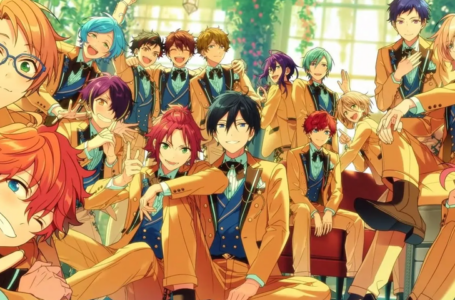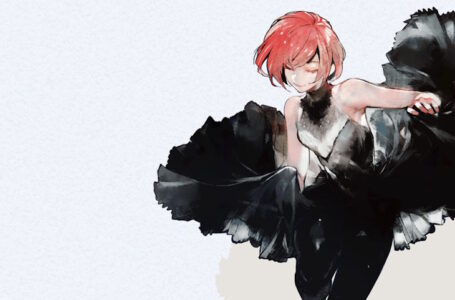Why you should be excited for Jack Jeanne
For over a year, not a day went by where I was not looking for hints as to whether or not we were going to see a western release of Jack Jeanne. This was due to one single teaser on the game’s official Twitter account back in March of last year, which happened to mention wanting to “deliver the game to the world”.
Who knew that after so long, we’d actually see this come to pass? On March 17, 2022, just in time for the game’s first anniversary, the western otome fanbase went ecstatic after the official Twitter account confirmed Jack Jeanne was really getting a localisation into English (and Chinese), and that we should expect some updates soon.
The game has been on many western fans’ wish lists since it originally released in Japan back in March of 2021. It was a big deal, with it being the brainchild of a certain mangaka, and the gushing about the product did not stop there once it released.
So today, we will explain why we’re all so excited for it — and what it could mean for the future of the otome game market. Rest assured that this is a massive deal — and besides that, it’s a game that is simply worth your attention. So let’s get into it.
Why all the hype for Jack Jeanne?
There’s one main reason for this, and it’s the simple fact that the creator of Jack Jeanne — along with its character designer, world designer, illustrator and insert song lyricist — is none other than Ishida Sui, the mangaka responsible for Tokyo Ghoul. And, by all accounts, he succeeded in bringing a brand new world to life in Jack Jeanne; the game received high ratings and praise, with it presently sitting at a score of 8.01 on vndb, and netting an impressive score of 36/40 in Famitsu.
The story follows heroine Kisa Tachibana (voiced by Yuka Terasaki), who enrols into the Univers Theatre School, but there’s a catch — she must hide her identity as a woman from the rest of the otherwise all-boys school in order to play as both male (Jack) and female (Jeanne) roles. Yes, it’s a good old-fashioned, cross dressing hidden identity sort of story — I’m feeling nostalgic about Hanazaki no Kimitachi e again!— that sees our heroine aiming to be at the top of the school in the performing arts, at least partly to follow in the footsteps of her famous actor brother.
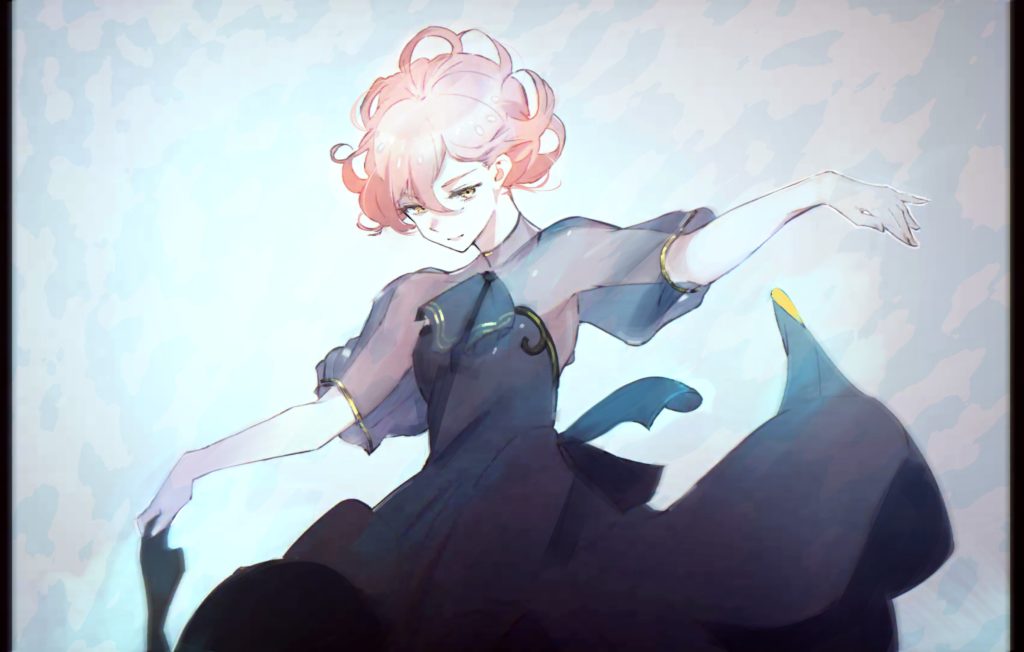
Jack Jeanne is an otome game in a similar vein as BUSTAFELLOWS: the two share the marketing tactic of being joseimuke titles (primarily aimed at women), but not explicitly calling themselves otomes. While the game does include character-centric routes, a romance aspect does not kick in until deep into each of these narrative paths. But where the game changes up the status quo is with its additional gameplay mechanics, such as rhythm-based sequences that can alter the story depending on how successfully you perform during them.
The game’s story progresses over the course of an in-game year, and has a musical motif to its presentation. The in-game seasons each conclude with musical plays, which are where the rhythm-based gameplay comes in.
With five of these sequences in total, Jack Jeanne does a great job of integrating its story and gameplay mechanics. Kisa is aiming to play the lead in the school’s last play of the year, and both the character dynamics and her performances will be affected depending on the events you’ve discovered, which love interests you’ve prioritised doing events will — and, of course, how well you do at the rhythm-based component. There are indeed consequences to how you play Jack Jeanne.
Alongside all this are additional interactive features, such as the game featuring a stat-raising element while pursuing the object of your affections, dialogue choices that can lead to additional CGs in certain circumstances — there’s over 160 illustrations in total — and even movement around a map rather than strictly linear gameplay.
It is safe to say that Jack Jeanne’s system attempts to be as interactive as possible, and it ultimately plays very unconventionally for the otome genre — and not just due to these gameplay mechanics. This would perhaps explain why it has specifically avoided using the term “otome” to describe itself during its promotion; this is a game whose creators want to see enjoy a broad appeal and amass as much interest as possible. Ishida even noted in an interview that for a promotional art piece for a magazine he “drew both male and female forms for Kisa, in the hopes that people would come to love the main character.“
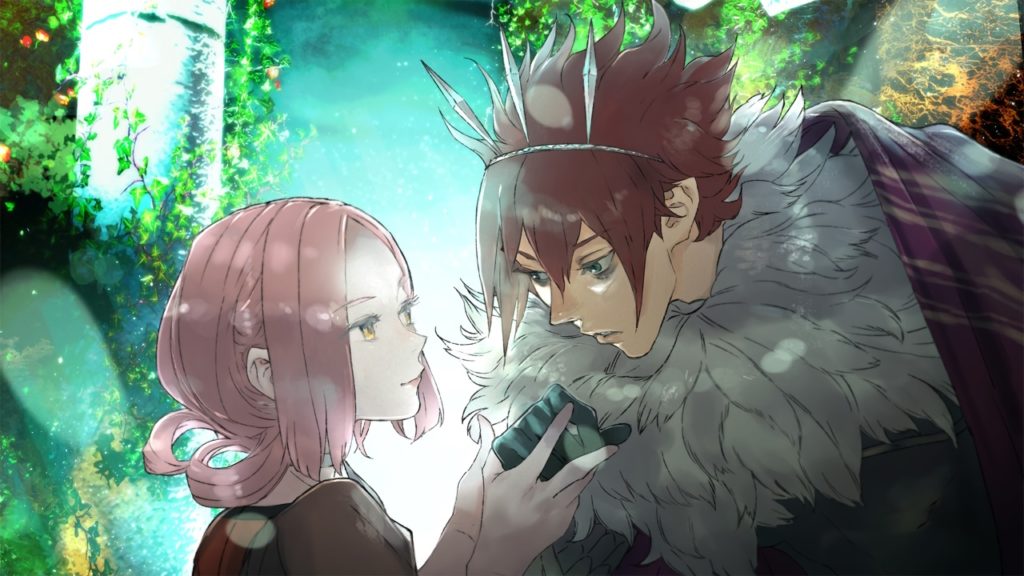
The game is meant to be played by anyone and everyone, and as much as we love and celebrate otome titles around here, the label has baggage and leads to certain parts of the audience making assumptions. With that in mind, it’s worth noting that the romantic aspects take a backseat to the development of the heroine, her goings-on as she pursues a career as a theatre kid, the hardships the various love interests face, and the progression of the main group of characters gradually moving from being strangers to friends.
“After finding a good balance between the seasonal performances and the everyday lives of the students,” Ishida added in another interview, “the path to creating Jack Jeanne finally became clear to me. While working on this project, I slowly came to the realisation that the game’s core revolved around a tug-of-war battle between school and performing.”
So whilst the central plotline may sound generic in some respects, its emphasis on youthful bonds should be the major takeaway from playing it. On top of it being a journey anyone and everyone can feel emotionally invested in, its heroine has been celebrated as being especially enjoyable for having concrete goals and a solid sense of development too. It sounds truly inspiring and uplifting, and despite being from the man behind Tokyo Ghoul, it is thoroughly wholesome in its messages of never giving up, and aiming for the stars and beyond in our aspirations.
Ishida jokes how he has a habit of creating too many characters in his works, but in the case of Jack Jeanne, it’s ideal. The sheer number of interesting characters makes the school setting feel lively and eventful, and each one is as likeable as another. It’s also neat to note how while the main grouping of the males are expectedly ikemen inspired, they’re still aesthetically and quintessentially Ishida. They’re still his distinctive designs, but developer Broccoli requested that the characters each have a strong and unique colour palette to them to help make them all stand out.
The game doesn’t just look good, but it has depth to it also, thanks to Ishida’s solid storytelling and character writing.
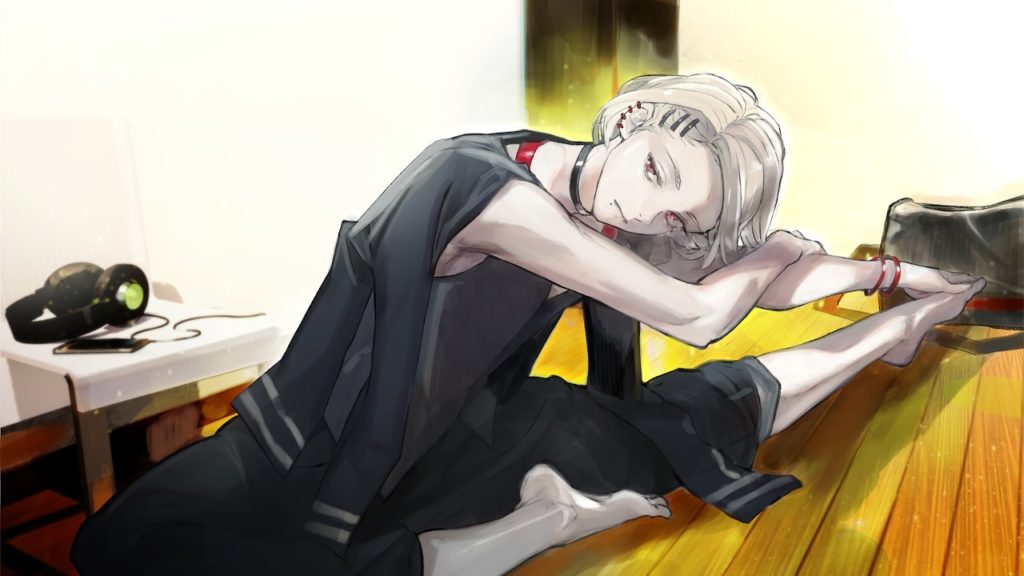
Ultimately, Jack Jeanne is slice-of-life drama with a fantastic score and exquisite art to compliment its theatre motif. And, despite the game being rather high-profile due to the talent attached to it, Ishida is keen to note that the game also has something of an indie feel to it, since the majority of the groundwork was handled by him and scenario writer Towada Shin, the latter of whom also wrote the Tokyo Ghoul novels, and is thus used to fine-tuning Ishida’s ideas into a fluid and natural sense of story progression.
What it could mean for the future of the otome game market
Now, the major “what if?” Jack Jeanne is developed and published by Broccoli, a prolific otome company who hold the rights to a variety of highly influential and popular otome titles such as Uta no Prince Sama, Kamigami no Asobi and Meiji Tokyo Renka. Despite the popularity of their games, they haven’t made it to English-speaking audiences before — and thus Ishida’s keen efforts to get the game published overseas may well mean that we’ll get to see more Broccoli titles in the future.
Getting a single Broccoli title to come west is an indisputable triumph, and it’s important to note this. If Jack Jeanne performs well, hopefully the company will see that localising their own works is a worthwhile endeavour; it may feel like a slim chance right now, but a good means of helping improve those chances is supporting titles like Jack Jeanne.
But even if Broccoli does not change their minds on bringing their back catalogue to the west, the fact that Jack Jeanne is coming over at all is highly significant — not just for them, but for the market in general. What with how well-received BUSTAFELLOWS was, there’s clearly an established market for joseimuke titles that aren’t exclusively aimed at a female player demographic. The audience for these games has a wide scope in terms of interests and willingness to engage with the material — so the better titles like this do, the more we’ll see in future.

This would hopefully mean that, even with 2022 looking like a jam packed otome feast already, we can look forward to even more developers and publishers taking notice of just how well otomes are performing, which may in turn lead to even more localisations. They have always been in high demand, and arguably now more so than ever with the high-profile releases we’ve had in the last couple of years.
Otome games in general continue to expand their reach, and are achieving magnificent feats. Hell, BUSTAFELLOWS was listed at the top of OpenCritic’s 2021 Hall of Fame, after all! So surely it’s only going to get better from here — and maybe seeing a localisation of Suicide Club isn’t actually a fairy tale at this point?
I shouldn’t get ahead of myself, though. For now, I’m feeling extremely grateful for the fact that Jack Jeanne is on the way — and encourage you to explore it when it finally arrives.
It will most definitely make waves on its western release — and hopefully it will be truly take the world by storm for its creator’s name alone. He deserves it, and come on, the artwork is stunning!
Jack Jeanne will appear either digitally or physically (maybe both, fingers crossed!) on the Nintendo Switch eShop. Exactly when is anyone’s guess right now — but let’s look forward to it with bated breath! This is a gorgeous visual novel to keep your eyes on.
Join The Discussion
Rice Digital Discord
Rice Digital Twitter
Rice Digital Facebook
Or write us a letter for the Rice Digital Friday Letters Page by clicking here!
Disclosure: Some links in this article may be affiliate links, which means we may earn a small commission if you make a purchase after clicking on them. This is at no additional cost to you and helps support Rice Digital!
- Sigh of the Abyss: Shadow Bonds – Prologue Review - October 7, 2023
- Is She The Wolf? is wickedly addicting TV - October 6, 2023
- The steady consumption of Slow Damage - October 5, 2023





